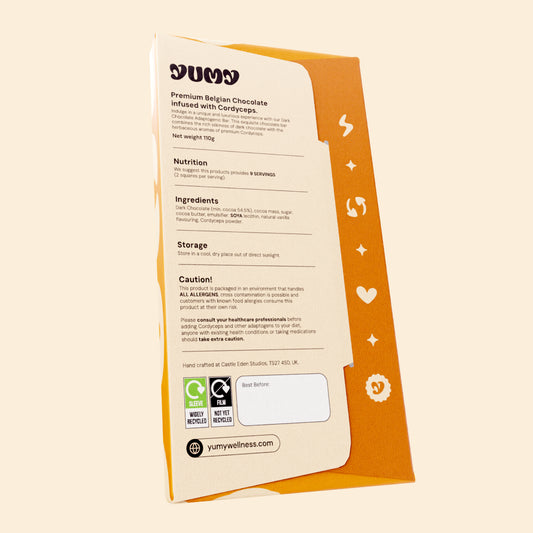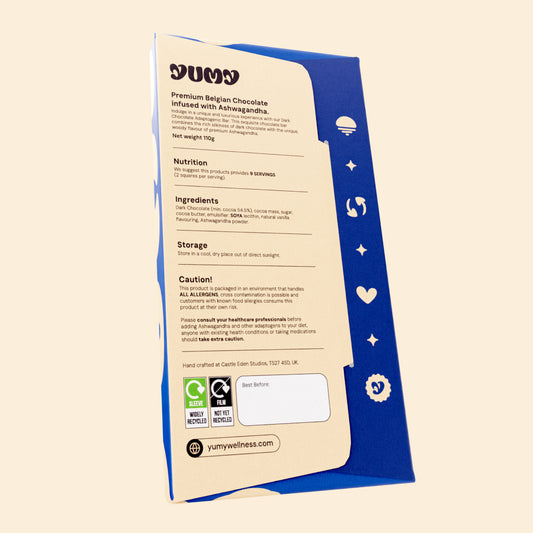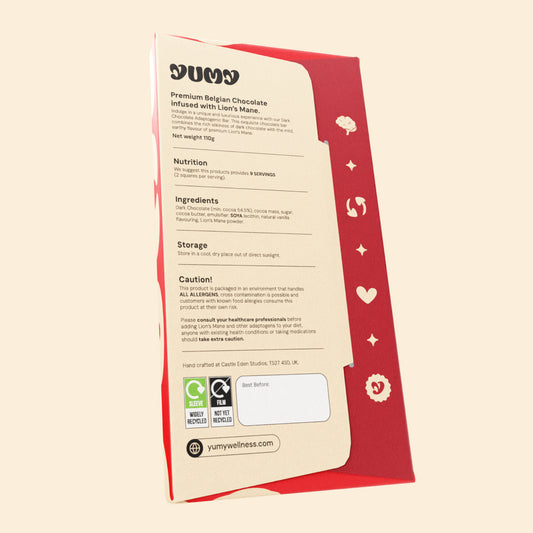Struggling to fall asleep? You’re not the only one. Millions of people worldwide struggle daily with sleep problems, whether that's struggling to fall asleep, sleeping too much, or struggling to stay asleep. With the plethora of stimulants in today's society, it's no wonder that we are having trouble switching off every night.
The key to better sleep is a consistent night time routine, this helps your body prepare itself for sleep and know what's coming. What you fill your routine with is personal preference, but we have done our research and gathered you some of the best methods out there for ensuring a better night's sleep.
Why do we struggle to sleep?

To know why we struggle to sleep, it's important to understand how sleep works. Our Circadian Rhythm is responsible for controlling our sleep and waking hours. This is a natural process in which our bodies run on roughly their own 24 hour clock. The sleep wake cycle can also be influenced by the sun, with sunlight signalling our brains that it's time to be awake, and darkness encouraging us to sleep.
So how does this link to troubles with sleep? Well, there are many reasons. For example, have you ever noticed that when you stay up past your usual bedtime, you go from feeling slightly sleepy to wide awake? This is our body's natural response based on how our ancestors had to be to survive. Back in the cave man era, staying up past our natural bedtime signalled that there was something wrong; perhaps we were to be awake on watch for the evening, or maybe there was a threat that had kept us awake. Although this is obviously not an issue for us in the modern day, it's still ingrained in our DNA that staying up past our usual bedtime is unnatural, and can indicate a threat. It would be unsafe to sleep if under threat, so our bodies fight the tiredness and keep us awake with stress hormones. So if you're wondering ‘why do I struggle to sleep after my bed time?’ you can thank our ancestors!
You may have heard a lot of fuss about blue light over the last decade or so. The boom in technology since the 90s and early 00s has meant that most of us spend hours on end staring at screens, whether that is for entertainment or work. These screens of course emit light, along a variety of wavelengths, but the most important one is the blue light. Have you ever wondered why spring mornings look so fresh and blue, and sunsets look warm and orange? Why is it harder to wake up on a cold winter morning than a bright summer day? These light waves have an effect on our brains, with the blue light signalling that it's time to wake up, and warm orange light telling us it's time for bed; the light actually causes chemicals in our brain to change. So staring at a screen all day floods us with blue light, signalling our brains that it is time to be awake and alert, not wind down for sleep.
So what can we do to create a night time routine for better sleep? Read on for our deep sleep tips and relaxation techniques, so that you can perfect your sleep hygiene.
Set a Consistent Bed Time

As previously mentioned, our bodies naturally run on a 24 hour cycle. The exact timing of the cycle can differ for everyone. Whilst I might find that going to bed at 10pm and waking up at 5am suits me best, someone else might feel better going to bed at midnight and waking up at 8am. It's all about finding what works best for your body, and then keeping it consistent. Not obeying your body's natural Circadian Rhythm has been linked to a plethora of short and long term health issues, such as drowsiness, poor co-ordination, obesity, diabetes and heart problems.
Start your ideal sleep routine with a consistent bed time, and a consistent morning wakeup time, ensuring you get as much sleep as your body needs.
Combat Sleep Debt

Sleep debt occurs when we frequently don't get enough sleep. Say we need 8 hours of sleep every night (though this differs from person to person) and we only get 6 hours. Over a week this will add up to 14 hours of missed sleep - giving us a sleep debt, and this can negatively affect our health. Some side effects of sleep debt include feeling tired and unable to focus, a weakened immune system, and difficulty processing information. Therefore, making sure we get plenty of sleep and aren't in a sleep debt is super important!
Create a relaxing environment

A relaxing environment is key for good sleep hygiene. Our body's temperature naturally lowers on an evening, making it easier for us to fall asleep. You may think that the best sleep is when you are warm and cosy, but actually our body temperature slowly continues to drop all night until it starts to rise again at 2-4am, and this rise signals our bodies to start to wake up. So a nice cool bedroom is ideal for if you are struggling with getting to sleep.
It is also important to make sure that our environment is calm and quiet. As previously mentioned, any kind of anxiety can trigger our nervous system to enter fight or flight mode, even if we don't feel like it has. In fight or flight mode, it would be detrimental for our bodies to let us sleep since there could be a threat. Therefore try to make sure that your environment is dark or dim, and quiet, to avoid anything that could trigger any kind of anxiety.
Unplug before bed

Like we mentioned, blue light triggers our brain into thinking that it's time to be awake. Try to remove screens an hour before bed, to allow your brain to start producing melatonin and help you to feel sleepy. There are also apps and built in features that can reduce blue light on your devices, but not using them at all is best, due to the way that technology these days can overstimulate our brains and cause mental stress (even if we don't feel like it is).
Wind down ritual

So if you cant scroll tiktok before bed what are you supposed to do? Try swapping out your scrolling ritual with some self care. Your nervous system will thank you for it, and it's a great excuse to look after yourself physically. You could take a relaxing bath, which will also help to lower your body temperature, helping you to fall asleep faster. You could also sit in a dimly lit room reading a book, which is a quiet and relaxing way to wind down before sleep. Just try to make sure you don't get too hooked!
Another option would be meditation. Though it isn't for everyone, ending your day with some reflection can be really powerful. Studies have shown that mediation is linked to lowered anxiety and stress, and a better sense of calm and peace
A Yumy Treat

Tried all of the above but still feel like something is missing from your sleep routine? Before looking towards synthetic sleep aids, consider adding an adaptogen like Ashwagandha to your bedtime routine. Ashwagandha has been shown to help people fall asleep faster, sleep deeper and feel more rested upon waking. Just two squares of Yumy Calm 30-60 minutes before bed provides you with 500mg of Ashwagandha, to help you drift off to dreamland quicker.
Ashwagandha for Sleep

There has been extensive research into Ashwagandha as a natural sleep aid. It ranks very highly among adaptogens for sleep.
The benefits of Ashwagandha are plenty, for one, it can help to reduce cortisol, the body's main stress hormone. Cortisol is released naturally throughout the day, which helps us feel alert and awake, but too much cortisol can increase our heart rate, make us feel anxious and cause other health issues. Cortisol is released in the body's fight or flight response, which nowadays can be triggered by things as trivial as social media videos. Ashwagandha helps to reduce cortisol levels in the blood, helping us to feel less stressed and ready for a good night's sleep.
Ashwaganda has a range of other health benefits which you can read about on our other blog posts, but in short, it can help to reduce stress, reduce inflammation, reduce cancer risks, improve memory and improve immune function. Its a bit of a big deal!
Final Thoughts
The key steps to an effective sleep routine really rely on listening to your body. Its important to keep a good routine and get as much sleep as your body needs. Reduce stressors and ensure a comfortable environment, and if all else fails consider adding Ashwagandha as a natural remedy for sleep problems into your routine.
If you would like to try adding Ashwagandha to your sleep routine, you can try our Yumy Calm bar. Infused with 500mg Ashwagandha per dose, it's the sweetest way to aid your night time routine!






